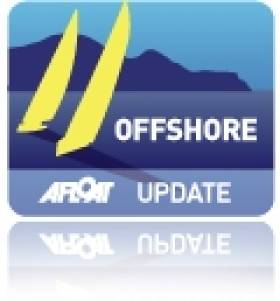Displaying items by tag: Wellington
Velux 5 Oceans: Windy Start to Ocean Sprint 3
The Velux 5 Oceans website has posted a video preview ahead of the third ocean sprint stage in the marathon round-the-world yacht race.
The third stage, which kicks off tomorrow, will take the four competing yachts across the Pacific Ocean from Wellington, New Zealand to Punta de Este in Uruguay.
Sail World reports that northerly gales are expected to buffet the boats from the off as they set out on the incredible 6,000-mile route, which will take them to Nemo Point - the most remote spot in the world - and the notorious challenge of Cape Horn.
American Brad Van Liew, skipper of Le Pingouin, is currently in the lead having won the previous two ocean sprints in the 30,000-mile race.
Five Oceans of Smile Too Arrives in Cape Town
Christophe Bullens celebrates his arrival in Cape Town as he finishes the first Ocean Sprint of the Velux 5 Oceans, from La Rochelle onboard his boat Five Oceans of Smiles Too.

Five Oceans of Smiles Too Photo: Ainhoa Sanchez/w-w-i.com
The former Belgian national sailing champion and tank commander in the Belgian army, now runs a yacht charter business. Christophe's boat is named Five Ocean of Smiles after the Smiles charity, which supports 'children who are HIV positive.
The Velux 5 Oceans is the oldest single-handed round the world yacht race which was first held in 1982. The race is the longest and toughest event for any individual in any sport. The race is a series of five ocean sprints within a marathon circumnavigation that covers a 30,000 mile route. The race started in France at La Rochelle with the first leg ending in Cape Town. The following stages go on to Wellington, Salvador, Charleston and back to La Rochelle for the finish.





























































